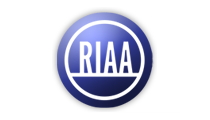This website uses cookies so that we can provide you with the best user experience possible. Cookie information is stored in your browser and performs functions such as recognising you when you return to our website and helping our team to understand which sections of the website you find most interesting and useful.
Business News Digital Industry People Labels & Publishers
RIAA boss speaks out against compulsory licences and safe harbours
By Chris Cooke | Published on Thursday 24 September 2015

When the Recording Industry Association Of America published its latest round of stats earlier this week, we noted how music industry trade groups are now concluding such reports not with “piracy is evil, fix piracy” calls to government, but instead by calling out the “value gap”.
This is the new buzz term music industry execs are using when moaning about digital services that exploit the so called ‘safe harbours’ of copyright law – so YouTube and SoundCloud – or those that benefit from compulsory licences and/or court-set royalties, which in the US means Pandora et al.
There is a “value gap”, say labels and publishers, because consumption of music is up, but income remains flat. Or because those services with the most users (the free ones) are paying way less to rights owners than those with much smaller user-bases (the paid-for ones).
Of course, as SoundCloud chief Alexander Ljung recently mused, the future of digital music is almost certainly a combination of freemium and premium, with users of the latter contributing much more cash to the business. Most labels and publishers would probably concede that is true, though they feel that the current value – to the industry – of free platforms is set, not by the market, but by those services exploiting safe harbours or compulsory licences.
And if you don’t believe me, just read this op ed piece by the boss of the aforementioned RIAA, in response to a recent article on the perceived value of music. The reasons for the “value gap”, says Cary Sherman, “is the flawed licensing regime in which we have to operate”.
He embellishes, though without mentioning the traditional-service-to-diss Pandora, and instead focusing on other beneficiaries of America’s compulsory licences, and the country’s unusual copyright situation regards traditional radio. Writes the RIAA chief: “Government-set licensing has enabled services like Sirius XM to use music at below-market rates, based on a decades-old subsidy that has long outlived its purpose”.
“Even worse, under current law, AM/FM radio broadcasters pay absolutely nothing for the sound recordings they use to draw listeners and generate billions of dollars in revenue. In a marketplace that values innovation, it’s ironic that it’s the legacy technologies enjoying government-granted economic benefits and competitive advantage”.
And as if that wasn’t bad enough, oh Lord, what about safe harbours? Referring to recent leaks of the new Dre album that was only meant to be available via Apple, Sherman says: “Copyright law provides a ‘notice and takedown’ system theoretically intended to deal with such theft. In exchange for a legal ‘safe harbour’ from liability, online service providers must deal with instances of theft occurring on their site or network when notified”.
“Unfortunately, while the system worked when isolated incidents of infringement occurred on largely static web pages – as was the case when the law was passed in 1998 – it is largely useless in the current world where illegal links that are taken down re-appear instantaneously. The result is a never-ending game that is both costly and increasingly pointless. Compounding the harm is that some major online music distributors are taking advantage of this flawed system”.
Hmm, I wonder who that could be? “Record companies are presented with a Hobson’s choice: accept below-market deals or play that game of whack-a-mole. The notice and takedown system – intended as a reasonable enforcement mechanism – has instead been subverted into a discount licensing system where copyright owners and artists are paid far less than their creativity is worth”.
So to conclude, in my words this time: “Compulsory licences and safe harbours are evil, fix compulsory licences and safe harbours”.
Read Sherman’s full article here.





